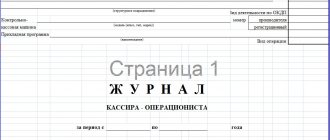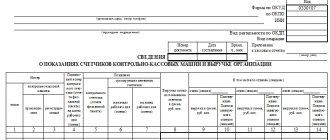Opening an account under a bank account agreement
To carry out any settlement and cash transactions, a bank client must open his own account. To legally formalize the opening of an account, a corresponding agreement is signed.
To open an account under a bank account agreement, mandatory identification of the client or his representative must be carried out. The client has the opportunity to open several bank accounts on the basis of only one agreement. It is also worth adding that banks do not have the right to refuse to open an account for cash settlement transactions, except in cases where the service is not permitted by current legislation or other legal acts.
Opening an account for cash settlement transactions is carried out after submitting a number of necessary documents to the bank. The client must first submit a corresponding application. Opening an account is also carried out only after presenting a passport or other document proving the identity of the bank client. It is also important for organizations to submit constituent documents (charter or memorandum of association) and decisions on creating a legal entity. In addition, legal entities must submit a certificate of state registration.
The procedure for accepting and issuing cash
The procedure for issuing money is described in great detail; it indicates what the cashier and the person receiving the money should do and how.
As before, the recipient of the money must present an identification document. The certificates mentioned in the Procedure do not apply to this type of document. If the recipient of the money has a reusable power of attorney, each time money is received, certified copies are made of it and attached to the expense documents. The original power of attorney is kept by the cashier (clause 4.2 of the Regulations).
The Central Bank paid special attention to the process of recounting money, which should be carried out so that the other party has the opportunity to observe the process. The cashier's actions are also described if the amount of money deposited is less than the amount specified in the cash receipt order.
The procedure for receiving accountable amounts and reporting on them has changed. In paragraph 11 of the Procedure, it was established that the issuance of money for business and operating expenses is carried out in amounts and for periods determined by the heads of enterprises. Now such an order is not needed. You can receive money upon an application from an accountable person, drawn up in any form and containing the manager’s handwritten note about the amount of cash and the period for which the cash is issued, the manager’s signature and date (clause 4.4 of the Regulations). The deadline for submitting advance reports for all expenses is three working days after the expiration date for which cash was issued against the report, or from the day of starting work. If earlier in paragraph 11 of the Procedure it was established that the final settlement of accountable amounts is made within the same period, now - within the period established by the manager.
As for processing transactions using cash register systems, a receipt order is issued at the end of the day for the total amount of cash received (clause 3.3 of the Regulations).
The procedure for registering a cash book of the unified form No. KO-4 (code 0310004) remains the same.
The Regulations do not contain requirements for conducting sudden audits of the cash register.
Customer account servicing
Account servicing involves the provision of a number of services. First of all, the bank must ensure the uninterrupted and prompt movement of cash flows of its clients. RKO also involves conducting foreign exchange transactions. Thus, the bank client has the opportunity to carry out his business activities both in rubles and in foreign currency. Moreover, according to current legislation, the client can open three options for a foreign currency account: current, transit and for accounting for foreign currency that was purchased on the domestic market. Cash settlement services for foreign currency accounts include the purchase or sale of currency on behalf of the client, conversion transactions, as well as the receipt or transfer of funds in foreign currency for import and export transactions.
Serving banking clients also involves performing non-cash transactions. In particular, thanks to cash settlement services, the client can count on systematic information about the disposal or receipt of financial funds, as well as ensuring the prompt execution of his orders. RKO also provides for the preparation and issuance of statements of completed financial transactions.
Transfers on behalf of the client
One of the most popular cash settlement transactions are money transfers on client instructions. To complete this operation, it is necessary to open a bank account for individuals or legal entities. This is necessary to identify a bank client.
Transfers on behalf of the client are carried out subject to a number of restrictions. They may relate to the purpose, as well as the currency and amount of the transfer. All of the above restrictions must be specified in the agreement concluded between the client and the bank.
The parties entering into such an agreement also undertake certain obligations. For example, the bank is obliged to inform its client about the procedure for making a money transfer, as well as the amount of the commission, if any. Banks must also take measures to prevent unauthorized entry of transfer information on behalf of a banking client. The responsibilities of banks also include storing documents on transfers made by the client. The average data storage period is 5 years. In this case, the bank must provide statements of completed transactions immediately after receiving a corresponding request from its client.
Maintenance of the online banking system
The development of modern technologies allows Russian banks to provide such services as Internet banking. Now the bank’s online system allows for remote customer service. This type of banking service has a number of advantages. First of all, the online system allows the client to control his account and all completed transactions via the Internet. Online banking also enhances the functionality of customers. They can generate receipts, maintain directories of counterparties, etc.
Remote servicing also provides the opportunity to save money and time for the client. Now he does not need to waste time going to bank branches. All transactions can be carried out from the comfort of your own home or office. Due to this, the client has access to his account 24 hours a day and 7 days a week.
An important advantage is the ability to control financial flows. This opportunity should be especially appreciated by legal entities with many branches or subsidiaries. At the same time, all remote maintenance operations are absolutely safe.
Cash withdrawal
As mentioned above, one of the main operations of cash settlement services is the issuance of cash. This operation has its own order and features. Cash issuance is carried out in accordance with expense statements, cash orders or settlement documents. Regardless of the type of document, it must be signed by the head of the enterprise or the chief accountant. Signatures can also be left by specially authorized persons.
Cash issuance under RKO requires the recipient to present a document that verifies his identity. The bank teller must write down the number and name of the document that was used to receive funds. The recipient must also sign for receipt of funds.
Cash disbursement can be carried out to satisfy various purposes. Most often, this banking operation is performed to issue wages, scholarships and other payments. The amount of funds intended for the payment of salaries or scholarships is established in accordance with the payroll of the enterprise. The deadline for issuing cash must also be indicated in this document.
8.2.1. Legal regulation of cash payments
In accordance with paragraph 1 of Art. 861 of the Civil Code of the Russian Federation, settlements with the participation of citizens not related to their business activities can be made in cash without limiting the amount or by bank transfer. But in relation to legal entities and individual entrepreneurs, paragraph 2 of this article allows for the introduction of restrictions.
Based on Art. 4 of the Law on the Central Bank of the Russian Federation, the Bank of Russia has established that cash settlements between legal entities, legal entities and individual entrepreneurs, as well as between individual entrepreneurs, if these settlements are related to business activities, can be made in an amount not exceeding 100 thousand rubles . under one agreement[281].
At the same time, in relation to some specific situations, cash payments are completely prohibited, for example, when banks issue loans to legal entities[282], when making payments under a letter of credit[283].
Payment of taxes and fees through the cash desk of the local administration or through the organization of the federal postal service according to the current Tax Code of the Russian Federation can also be made only by individuals and only if there is no bank in the area (clause 4 of Article 58). The exception is the posting by legal entities of a cash deposit to secure the payment of customs duties, which can be done in cash at the cash desk of the customs authority (clause 1 of Article 345 of the Customs Code of the Russian Federation).
8.2.2. Cash transactions
In addition to actual cash payments, issues of organizing cash circulation in accordance with Art. 34 of the Law on the Central Bank of the Russian Federation also refers to the definition of the procedure for conducting cash transactions, i.e. working with cash.
Legal regulation on this issue is carried out by the Bank of Russia[284].
Basic rules for conducting cash transactions
are as follows.
All legal entities are required to keep available funds in bank accounts with credit institutions[285].
To make cash payments, each legal entity (including a credit organization) must have a cash register, and to record the receipt and issue of cash, maintain a cash book. Cash is accepted by cash desks using incoming cash orders of a standard form, and issuing cash is issued using outgoing cash orders, also of a standard form, or properly executed other documents. In particular, remuneration, payment of social insurance benefits and scholarships are made according to payroll (settlement and payment) statements without drawing up a cash receipt for each recipient.
Each legal entity may have cash in its cash register only within the limit
established by the credit institution servicing it in agreement with the management of this legal entity. Cash in excess of the established limits must be submitted to a credit institution for crediting to the account of a legal entity. In this case, the money is deposited into the cash desk of the credit institution.
The cash balance limit in the cash register is determined annually on the basis of a calculation in the established form submitted by a legal entity to a credit institution[286].
If a legal entity has several accounts in various credit institutions, it applies to one of them of its choice. For legal entities that have not submitted a calculation for establishing a cash balance limit to any of the credit institutions servicing them, the cash balance limit is considered zero, and cash not deposited with the credit organization is considered over-limit.
The cash balance limit may be revised during the year at the motivated request of a legal entity.
Enterprises are required to hand over to the bank all cash in excess of the established limits on the cash balance in the cash register in the manner and within the time limits agreed upon with the servicing banks.
Cash can be deposited at daytime and evening cash desks of banks, collectors and joint cash desks at enterprises for subsequent delivery to the bank, as well as communications companies for transfer to bank accounts on the basis of concluded agreements.
It is allowed to keep cash in your cash registers in excess of the established limits only for the issuance of wages, social payments and scholarships for no more than three days (for the Far North regions - five days), including the day of receiving money from the bank.
In addition, legal entities and individual entrepreneurs are allowed to use cash received at their cash desks for settlements, subject to restrictions on cash settlements in the manner prescribed by the Bank of Russia. The exception is cash accepted by legal entities that are not credit institutions and individual entrepreneurs from individuals as payments in favor of other persons (i.e. when carrying out operations provided for in Article 13.1 of the Law on Banks and Banking Activities), which are subject to delivery in full to the cash desks of credit institutions (their structural divisions)[287].
There is also the possibility of issuing cash to employees on account (for example, to pay for travel expenses, fuel and lubricants, etc.). Such issuance does not fall under the concept of settlements, since in this case we are not talking about the payment of income to the employee, but about granting him the right to pay certain expenses of the legal entity itself. The employee will have to report the amounts spent to the accounting department, and return the unspent amounts back to the cashier.
Legal entities can receive cash from their accounts in credit institutions (through the cash desks of these credit institutions) only for the purposes established by regulations (in particular, this applies to the payment of wages, social payments, scholarships, etc.). The issuance of money by a credit institution in such cases is carried out on the basis of a check.
Cash can also be received using bank cards[288].
The procedure for carrying out cash transactions by credit institutions is determined by a separate act of the Bank of Russia[289].
At the same time, credit institutions whose licenses to carry out banking operations have been revoked are guided by acts for ordinary legal entities when performing cash transactions[290].
The acceptance and issuance of cash by credit institutions as a provision of services to their customers is called cash services .
The provision of cash services to legal entities and individuals is a banking operation (Clause 5, Part 1, Article 5 of the Law on Banks and Banking Activities), within the framework of which settlement transactions are carried out. As a result of these transactions, the public legal obligations of organizations for storing funds in credit institutions and the civil legal obligations of credit institutions for servicing these organizations are fulfilled, as well as the transformation of property rights into obligations and vice versa. These circumstances allow us to say that cash transactions are a type of settlement transactions with a special legal regulation.
Reception and recalculation of cash
RKO also provides for the acceptance and recalculation of cash received from bank clients. This service has many advantages. First of all, by providing this service, the authenticity of incoming cash is quickly verified. For this purpose, modern banking technology is used.
It is worth noting that cash is accepted and counted only at the designated time. Typically, these times are working hours on weekdays. The cashier who accepted the funds is required to issue a check indicating that the money received has been credited to the client's current account.
Only solvent banknotes that have retained at least 55 percent of their original area are allowed to accept cash. Therefore, banks must accept worn, soiled or torn banknotes. Banknotes that have changed their color and glow in ultraviolet rays are not allowed to be accepted. In addition, it is prohibited to accept banknotes that are defective from manufacturers or that clearly show traces of coloring agents intended to prevent theft of banknotes during storage or transportation.
Cash balance limit in the cash register
To conduct cash transactions, legal entities and individual entrepreneurs must set a limit on the balance of cash that can be kept in the cash register. By cash desk we mean a place for conducting cash transactions. This place is determined by the head of the legal entity, an individual entrepreneur. The limit is determined at the end of the working day after the balance in the cash book is cleared.
The limit is determined by the legal entity itself, an individual entrepreneur, and not by the servicing bank, as stated in paragraph 5 of the Procedure. An administrative document (for example, an order, an order) must be issued about the established limit.
Cash in excess of the prescribed limit should be kept in bank accounts with banks. Money must be handed over to a bank, collector or post office by an authorized representative of a legal entity, an individual entrepreneur or his authorized representative.
Accumulation of money in excess of the limit is allowed not only on paydays, as before, but also on weekends (holidays), if the organization carries out cash transactions on this day (clause 1.4 of the Regulations). According to the author, the last clarification is important, since a situation often occurs when the accounting department does not work on weekends, but a structural unit of the business works and accepts payments from individuals. And accountants in this situation often asked questions about how to calculate the cash limit on weekends.
In addition, payment of wages can now be made within five working days (clause 4.6 of the Regulations), and not three, as it was before (clause 9 of the Procedure).
The procedure for calculating the cash limit is given in the appendix. The limit is calculated using a special formula that takes into account the volume of revenue received, the billing period (about 92 days), as well as the period of time between the days of depositing cash at the bank. For the first time, it was established that this period should not exceed seven working days, and in a locality where there is no bank - fourteen working days. The only exceptions are acts of force majeure.
A formula for calculating the limit for the case of no revenue receipts is also given.
It seems that with the introduction of a new procedure for calculating the limit, the procedure and form for calculating the limit established in the Central Bank Regulation No. 14-P dated 01/05/1998 “On the rules for organizing cash circulation on the territory of the Russian Federation” (approved by the Board of Directors of the Bank of Russia on 12/19) should be cancelled. .1997, protocol No. 47).
It is gratifying to note that the Regulations do not require the installation of a special cash register room. Measures to ensure the safety of cash during cash transactions, storage, transportation, the procedure and timing of checks on the actual availability of cash are determined by a legal entity or individual entrepreneur (clause 1.11 of the Regulations).
In conditions where accountable funds are transferred by almost all organizations to employees non-cash on bank cards, formally, when insignificant amounts pass through the cash register, for example, for the return of funds from an account, it was interpreted by the tax authorities as a violation of the Procedure. This made it possible to impose administrative fines on organizations under Article 15.1 of the Code of Administrative Offenses of the Russian Federation. Let us recall that recently the Supreme Court of the Russian Federation, in its decision dated July 20, 2011 No. GKPI11-484, indicated that separate divisions of companies are not required to have special cash rooms.










